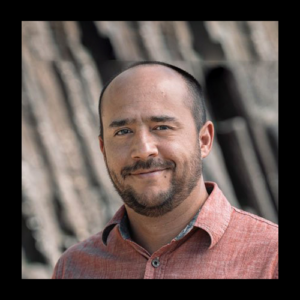
Director’s Welcome
10/01/2023
Welcome
Letter From the Director

Knowledge of the unsteady nature and propensity for cataclysms of the Pacific Northwest can be traced to the indigenous stories of the epic struggle between Thunderbird and Whale. Oral histories clearly tell of devastation wrought by earthquakes and their associated landslides and tsunamis. The beauty of this evergreen landscape is always in tension with the capacity for dramatic and destructive power of its earthquakes, volcanoes, wildfires, and landslides.
Cascadia is also the site of a beautiful story of scientific discovery where geologic clues from buried marshes, tsunami sands, and ghost forests were first used to unravel the details of the enormous earthquakes of centuries ago. The stories told by people here and as far away as Japan, along with advanced physical and computational models have been used to paint rich tableaus of those past events. And the story told by this confluence of disciplines is unequivocal. Thunderbird and Whale have struggled mightily for a long time, and, more importantly, will continue to struggle well into the future.
Damaging earthquakes have occurred often, like the 2001 Nisqually quake which caused the most damage to homes and businesses of any U.S. quake in the past 25 years. The Pacific Northwest is earthquake country – this means that our region needs to be ready, it needs to prepare! And, yes, we have already been doing so, for quite some time now. From local to federal levels, the Pacific Northwest has been slowly bracing itself for what can one day come. Nonetheless, too many of our buildings, bridges, and other facilities are still far from earthquake-ready.
To adequately prepare we need to know more about what is possible. What will the shaking be like? How far will tsunamis inundate? Where will landslides be triggered? How might our volcanoes respond? Increasing the strength and resilience of our lifelines, of our infrastructure, and our communities depends on cutting-edge science.
We also need to invest in our people. Our region is a rich and diverse panoply of cultures and languages and solving the challenges ahead needs all of us. We must ensure that folks from every corner and every walk of life have access and opportunity to participate in the great scientific journey of discovery and that we build an environment where all voices can be heard.
This is where CRESCENT comes in. It represents a grassroots effort on the part of scientists, educators, and community members to come together and speak with one voice. To organize and unify efforts across our region so that we can build new knowledge, share it openly, create a sense of community and belonging, and build up our earthquake culture.
I hope you will join us on this mission.

Diego Melgar
Director, CRESCENT

